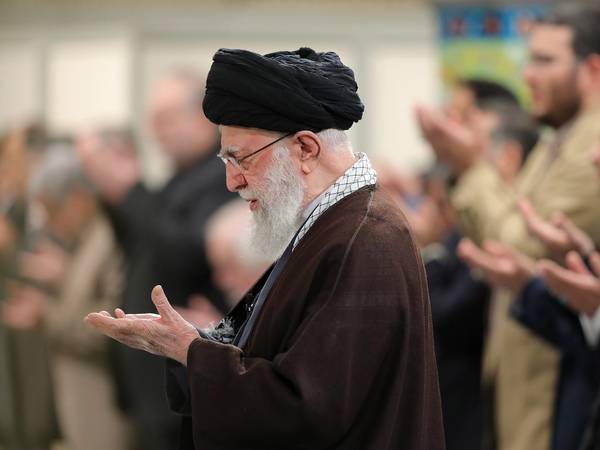A seasoned politician in Iran has openly criticized the regime’s orchestrated elections, suggesting that key decisions about elections are made by the office of the Supreme Leader.
Hossein Marashi, the secretary general of centrist Executives of Construction Party remarked: "If the decision was already made to have Ebrahim Raisi and Mohammad Bagher Ghalibaf as the heads of two of the three powers of the government, I wonder why they did not assign the right roles; Ghalibaf as the President and Raisi as the Speaker of the parliament?"
Raisi is seen by most pundits and even regime politicians as a bad manager, who only makes promises, and is not able to run an effective and efficient administration. Ghalibaf, on the other hand, was mayor of Tehran for 12 years and has more managerial experience.
Marashi also argued that "Ghalibaf can manage the parliament better than hardliners such as newly elected MPs Mahmoud Nabavian and Hamid Rasaei,” but the problem is that the hardliners will not allow him to play a part in decision-making at the Majles. He noted Ghalibaf’s ongoing disagreements with the President over various bills.
When asked if he was surprised that seasoned politicians like Mohammad Javad Bahonar did not win enough votes to enter the parliament while low-key politicians such as Nabavian and Rasaei did, he said: "No, I was not surprised. Those gentlemen won the votes in the absence of the people in the election." He lamented that “It is a shame this election has deprived the nation of the services of good conservative politicians like Bahonar.”
The Guardian Council, which has the right to vet candidates, disqualified hundreds of individuals in the run-up to the March 1 elections, paving the way for hardliners to win a sizeable majority in the parliament (Majles). Nearly 60 percent of eligible voters stayed away from the polls, which further helped the ultraconservatives.
Marashi revealed that he had once conveyed to President Raisi that pro-reform politicians have never been his political rivals, emphasizing that the real challenge lies in addressing the people's disenchantment with elections.
Meanwhile, Jalal Rashidi Koochi, an current lawmaker who was not allowed to run for re-election told reporters with a high degree of certainty that "Ghalibaf is not going to be the speaker of the next parliament."
He attributed Ghalibaf's downfall to his alliance with ultraconservative Paydari Party members, warning of increased regional and international tensions with radicals in the Majles and a potential Trump victory in the US elections.
Gholamreza Tajgardoon, a winner in the recent election despite previous disqualification, asserted that the new parliament won't have a figurehead.
Tajgardoon predicted that the new Iranian year, which started in on March 20, will be a difficult year for everyone including President Raisi. However, he added that even a reshuffling of his cabinet is not going to help Raisi.
He added that one of the difficulties of the government is that it gets a partial three-month budget at the beginning the year. Tajgardoon said: "Money is the government's biggest problem. It was not difficult to run the country if we had the money."
There are several politicians in the newly elected parliament who wish to run for president in the 2025 elections. They will certainly do their best to further weaken Raisi's position.
Looking ahead, Tajgardoon noted the ambitions of several politicians in the next Majles to run for president in 2025, aiming to weaken Raisi's standing. However, he cautioned against excessive infighting damaging the Majles' reputation, advocating instead for addressing the needs of the majority of voters who abstained from the recent elections.
